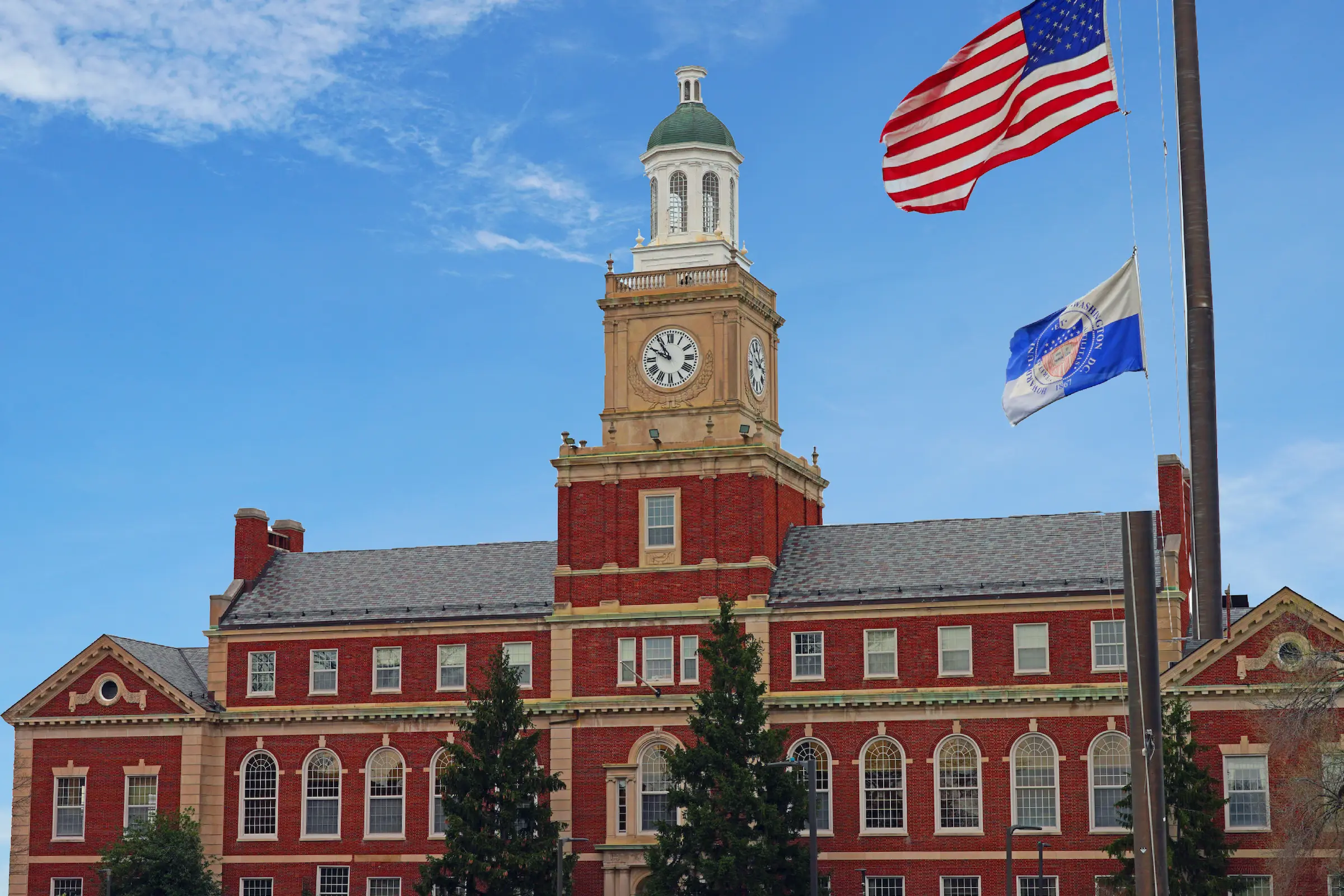America’s Debate-Only Culture Is Breaking Our Ability To Problem Solve
November 25, 2025
Share

The tragic shooting of conservative commentator Charlie Kirk this fall was more than another flashpoint in America’s culture wars. It exposed something deeper: we’ve built a political culture that can argue endlessly but can’t solve anything.
From Congress to college campuses, we’ve turned discourse into a spectator sport. At Tennessee State University, a MAGA-affiliated group’s visit ended with chants, confrontation, and police escorts. On social media, viral “1 vs. 20” debate spectacles rack up millions of views by pitting lone participants against a crowd for maximum heat. Even a moment of silence on the House floor devolved into partisan shouting. Each episode generated outrage and clicks. None produced progress.
This debate-only culture isn’t just unpleasant, it’s sabotaging our capacity to govern.
The Consequences Are National, Not Cultural
The evidence is everywhere. Just 4% of Americans say they have “a great deal of trust” in Congress, according to Pew Research. Gallup finds that confidence in higher education, business, and the media is shaky. Meanwhile, 61% of adults report they’ve stopped talking about politics altogether because the conversations feel futile or hostile.
A nation that can’t talk productively can’t govern effectively. You see it when legislatures default to gridlock, when city councils walk out of meetings, and when businesses stay silent on civic issues for fear of backlash. The civic muscle of collaboration across differences has atrophied.
Moving Beyond Debate
Debate has an essential role in our country and should be part of the civic toolbox. Debate sharpens ideas, tests assumptions, and surfaces dissent. But when debate becomes the only form of engagement, it corrodes the trust required to act on anything that debate reveals. A system built solely on adversarial logic produces stalemate, not solutions.
Productive conversation, what some call “civil discourse” or “constructive dialogue,” is the missing half of that civic toolbox. This form of conversation is aimed at understanding, not scoring points. It lowers the temperature but not the stakes on hot topics like crime, immigration, and healthcare. When done well, this isn’t “talk therapy.” It’s a measurable process: set a shared goal, listen to reflect understanding, identify where values align, and agree on one concrete next step. It’s the difference between rhetorical combat and civic problem-solving.
Proof That It Works
Across sectors, productive conversations are showing tangible results, though they rarely make headlines.
Across the country, more than 100 colleges are rethinking how they prepare students to learn to engage across divides. At the University of Virginia, student Jack Siegel launched a discourse initiative after a tragic campus shooting. He recalls watching two peers with divided political beliefs find common ground. “I did all this work of intention-setting with them,” he says, “and all of a sudden…they’re agreeing with each other on things, and they’re listening with intention.” A moment that could have widened a rift instead built connection.
ChallengeUS, a youth-led nonprofit my organization supports, hosts competitions that crowdsource student perspectives on pressing civic issues. Eighty-five percent of participants reported increased interest in civic life after engaging. When given the chance to talk, young people don’t disengage—they lean in.
In Florida, the Agree to Disagree project that brings together students at Florida State University and members of the Tallahassee community. C&S fellow Ryan Gans put it simply: “At the end of the day, we are all Americans… While we may disagree on what that vision is, as long as we remind ourselves of that, the future becomes a little less bleak.”
And this shift isn’t confined to campuses—the business world is discovering the same thing. We’re currently piloting an initiative with 25 companies to teach foundational civic skills in the workplace. Turns out that these civic skills are also the skills that help people lead, collaborate, and solve problems together.
Organizations in our network like Braver Angels, Interfaith America, and BridgeUSA are convening people from across ideologies, experiences, and beliefs in structured conversations that move past slogans and toward shared purpose.
A Strategic Capability, Not a Soft Skill
Some will say conversation is soft. That power yields nothing without pressure. But power alone doesn’t change minds; it creates enemies and deepens resistance. Productive conversation isn’t replacing debate. If debate reveals what divides us, conversation reveals what we can still do together. Both are essential.
What Needs to Change
We should treat productive conversation as a strategic investment, not an extracurricular one:
- Government leaders should pair oversight hearings and performative town halls with small, facilitated dialogues designed to build trust across political divides.
- Colleges and civic organizations should measure dialogue outcomes like trust, collaboration, and civic participation, the same way they track internships or voter registration.
- Businesses should upskill employees with the skills to collaborate across difference.
- Media platforms should amplify formats that reward follow-through and synthesis, not just sound bites.
- All of us should try one move this week. Ask someone, “What’s the life experience behind your view?” Reflect it back before responding.
The Stakes
With another election year approaching, the volume of our politics will only rise. The question is whether our capacity to listen will keep pace. This moment offers a rare chance to reset norms. Democracy depends on disagreement, but it also requires the ability to work through it. Productive conversation is how we do that.
The Takeaway
We won’t debate our way out of division. We can talk—and listen—our way to a stronger, more united country. The spotlight is on us. Let’s use it not just to win the argument, but to build the problem-solving muscles that our communities need.
Stay Engaged
Get More News
Join our mailing list to get more news like this to your mailbox.
Support Our Work
Help us invest in the talent, ideas, and networks that will develop young people as effective, lifelong citizens.
Ways to Support Us